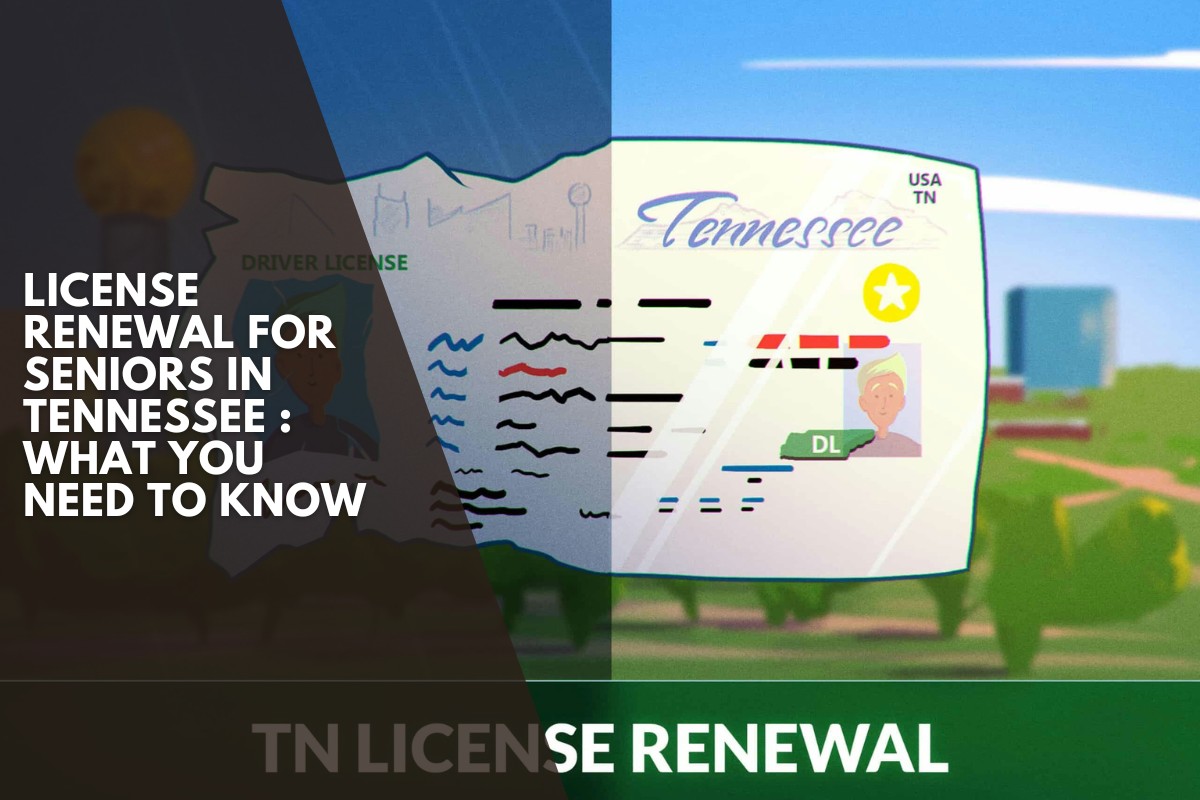License renewal for seniors in Tennessee involves specific procedures and options designed to balance safety on the roadway with the continued independence of older drivers. Here’s what you need to know as of August 2025:
Renewal Periods & Age Rules
Standard Renewal Intervals: Tennessee generally issues driver’s licenses for 8 years to adults under 65. However, the period shortens to every 5 years once a person turns 65. This adjustment allows for more frequent checks on a senior’s vision and general health, ensuring ongoing fitness to drive.
Fee Discounts: Drivers aged 60 and over may qualify for reduced licensing fees during renewals.
How Seniors Can Renew
1. In-Person Renewal
Most seniors in Tennessee renew their licenses in person at a Driver Services Center.
At the time of renewal, expect to:
Provide proof of identity and residency.
Undergo a vision test performed on-site, free of charge. If further examination is needed, a Vision Examination Form may need to be completed by an optometrist or ophthalmologist.
Update contact or address info.
Take a new photo if required.
Pay the renewal fee (about $28 for a standard Class D license; reduced for those over 60).
If any health issues affecting driving are disclosed or suspected, you may be asked for a Medical Form signed by a healthcare professional attesting to your fitness to drive.
2. Online or Mail Renewal
Some seniors may be eligible to renew online or by mail, particularly if they have no medical red flags and their renewal cycles permit it.
Typically, seniors aged 70 or above must renew in person—online/mail renewal may not be available beyond a certain age or after certain types of renewals.
A courtesy reminder is mailed 8–10 weeks prior to expiration, detailing your available renewal options and instructions.
Testing Requirements
Vision Test: Required for every renewal for all ages, but especially emphasized for seniors. An in-person vision screening is standard, and more detailed tests may be requested if needed.
Written or Road Test: These are generally not required for routine renewals but may be mandated at the discretion of DMV staff if there are concerns about a senior’s ability to drive.
Reporting Impairment: Family members, healthcare providers, or law enforcement may submit written reports if they believe a senior is no longer fit to drive. The state may then require further medical or skills evaluation before renewal.
Special Considerations
License Restrictions: The DMV may place restrictions on licenses (e.g., requiring glasses while driving) if necessary to ensure safety of the senior driver and others on the road.
Disabled Placards or Plates: Seniors with mobility impairments can apply for special parking placards authorized by a healthcare professional.
Tips for a Smooth Renewal
Bring all required documents, including proof of identity, residency, and any necessary medical forms.
Expect a vision check and come prepared with any corrective lenses you use for driving.
Be honest when answering questions about your physical and emotional ability to drive.
Check your renewal notice for specific instructions regarding your situation.
Table
Tennessee strikes a balance by offering seniors both oversight and convenience, helping ensure all drivers remain safe while preserving personal mobility and dignity. If you or a loved one is approaching renewal age, visit the Tennessee DMV website or your local Driver Services Center for guidance tailored to your situation.
Sources
[1] https://collincountymagazine.com/2025/07/30/license-renewal-for-seniors-in-tennessee-what-you-need-to-know/
[2] https://pfph-law.com/elderly-drivers-and-tennessees-license-renewal-policies/
[3] https://www.nolo.com/legal-encyclopedia/tennessee-driving-laws-seniors-older-drivers.html
[4] https://zutobi.com/us/tn-car/driver-guides/tennessee-drivers-license-renewal
[5] https://www.tn.gov/safety/driver-services/classd/dlrenew.html











